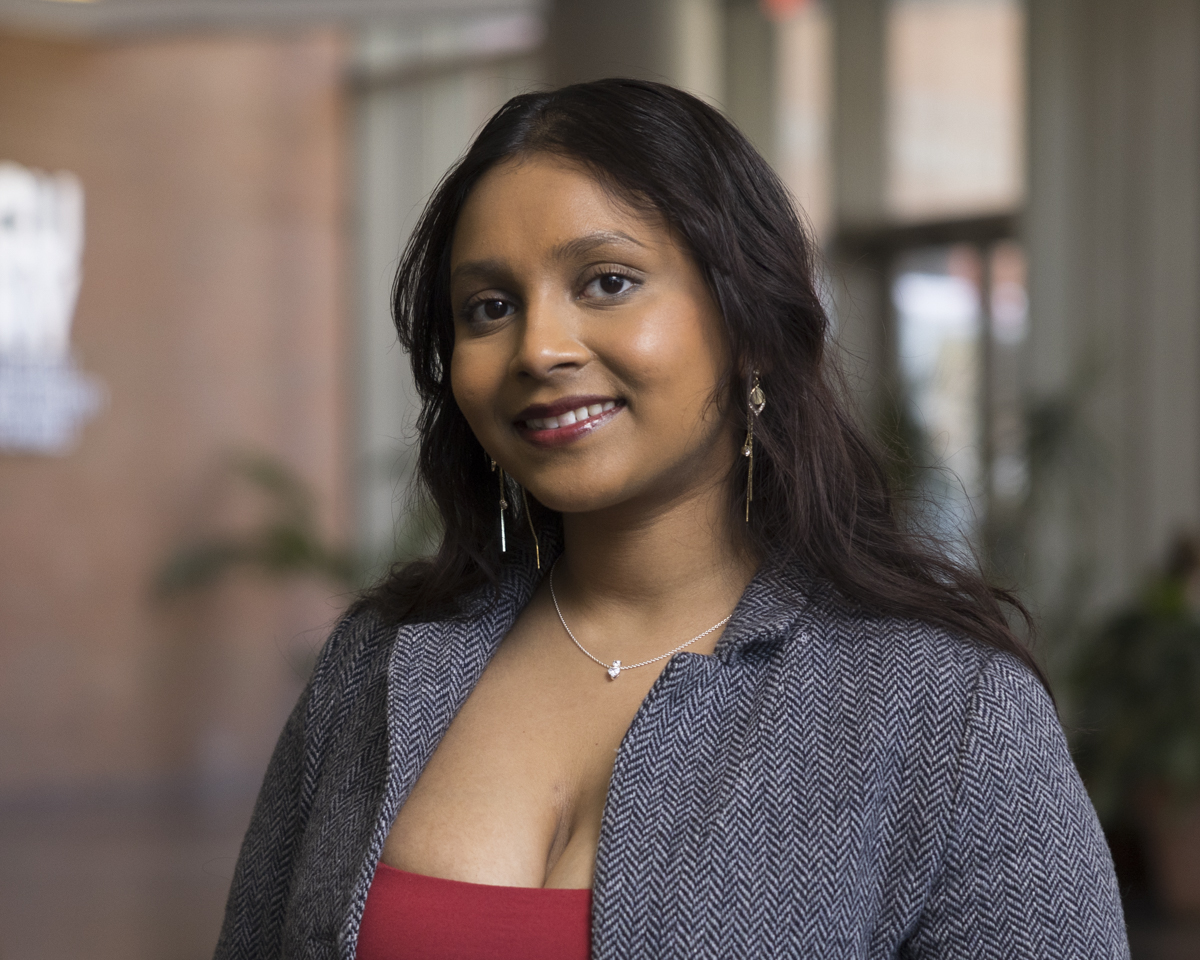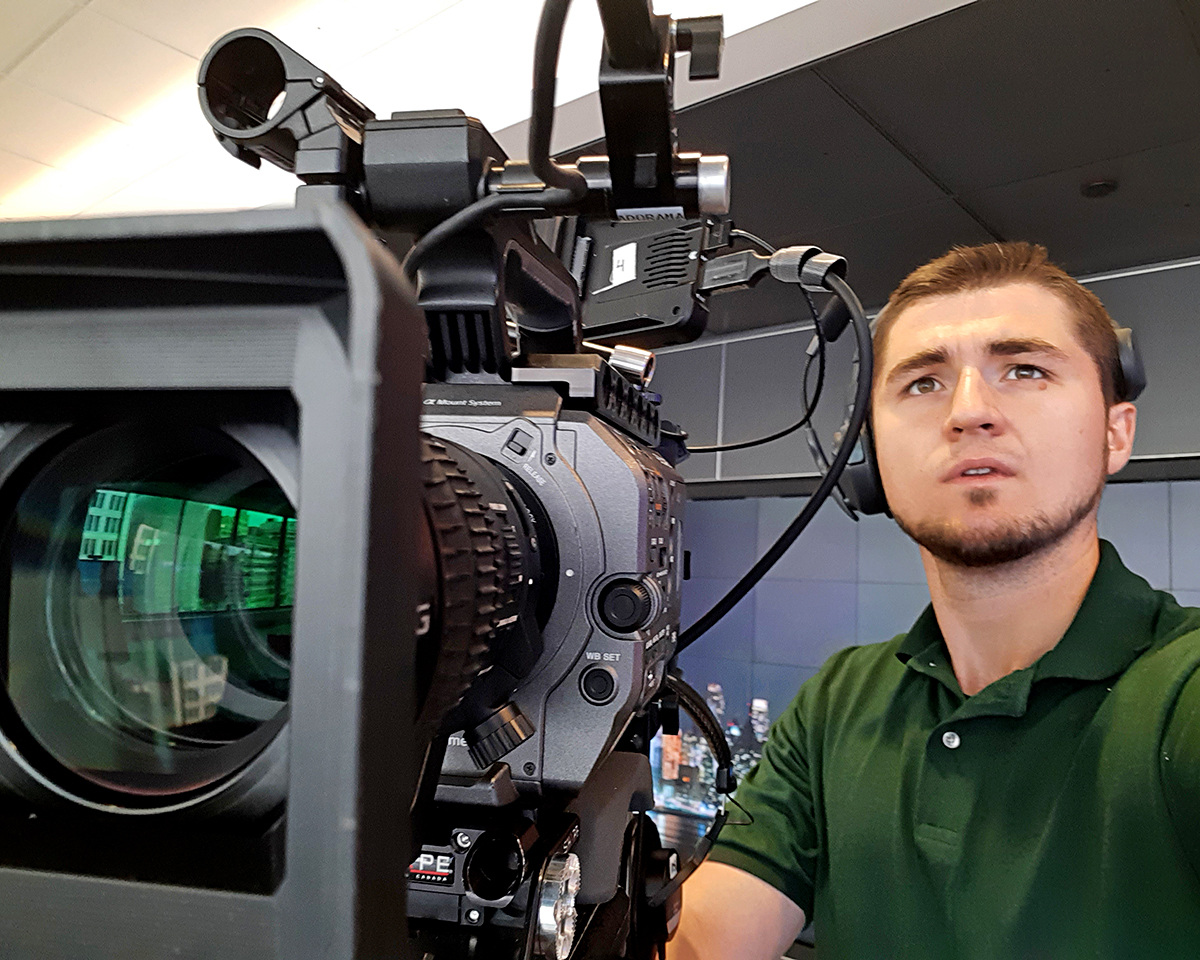The road to commencement has been a long and bumpy one for Ocean Vuong, but the B.F.A. creative writing graduate handled it all with unparalleled grace. What others might regard as burdens, he sees as blessings, as keen experiences that serve to inform his writing and give it grit and edge.
Vuong has, for the most part, managed to triumph over some of the harsher consequences that come with being regarded as part of a lower caste. He is Vietnamese and American, poet and scholar, economically poor and spiritually wealthy, remarkably normal and innately queer. Still, he’s much more than the sum total of his parts.
“We come from peasant stock,” he says as he reminisces about his family’s history. “My grandmother’s uncles and brothers were killed while fighting for the south during the Vietnam War. Many of the fields were ravaged by war. If all you do for centuries is farm, the decimation of the fields means the destruction of your livelihood.”
His grandmother made her way from the countryside to the city to find work. But during wartime, work was scarce, especially for an uneducated, illiterate woman.
“But she was very pretty,” Vuong says. “And there were a lot of G.I.s. So, you find a way. There’s no way I could ever understand the necessity of having to make that kind of choice, but she can’t be negatively judged for it. In fact, I’m proud of her. That’s not an easy thing to do. She put on her purple dress and did her thing. And she survived.”
From those liaisons with American soldiers, his grandmother gave birth to three daughters, one of whom is Vuong’s mother.
Because of the potential danger his mother’s mixed-race status posed, and the limited academic and economic opportunities, Vuong’s family immigrated to the United States through an American church sponsorship secured by his father, a Chinese-Vietnamese native. They spent six months in a refugee camp in the Philippines before ending up, finally, in a predominately African-American neighborhood in Hartford, Conn.
Vuong remembers little about Vietnam, yet his writing speaks to the history and the melancholy of his grandmother’s country. He credits her for keeping it fresh and real for him.
“My grandmother was my caretaker. There was no television or radio. We had a room, a chair and a lot of blankets. We would gather around and she would tell stories and sing these devastating songs about war and loss. You have to understand: Vietnam’s problems did not begin with the Vietnam War. It’s been fighting since 500 B.C. — with China and Genghis Khan, the Japanese, the French. It was never quite independent until 1975. This idea of loss, melancholy and sorrow is very deeply rooted in personality, in the art, in the history, in the language; in the songs even before the lyrics begin. Much like the work songs of African slaves.”
These stories activated Vuong’s imagination, and Vietnam began to unfold before him as though his grandmother opened a portal that led back to the devastation she witnessed. Vuong’s grandmother passed away in 2008, which prompted him to start writing.
“I realized how precious these stories are, but that they’d die with the speaker — unlike literature. Since I was the only one in my family with the ability to write them down, I did.”
Ultimately, it was hip-hop music and a helpful teacher that inspired him to convert those journal entries into poetry.
Vuong walks with a confident swagger. There’s something decidedly urban in his speech. Having grown up surrounded by African-American families who made him one of their own, he’s an honorary homeboy of sorts. It’s an honor that he takes very seriously.
“Any interaction with the [black] community was, to my family, a gift. When I was inside my apartment, I was in ‘Vietnam.’ When I stepped outside, ‘black America’ was my America. I started to carry the same values, the same sense of pride. Sometimes in the popular media, they pervert that pride for comic relief, but I saw that there was a purpose. That it was a way of getting by, of empowering yourself.”
Embracing his adopted culture meant that he would be subject to some of challenges faced by its members.
“When someone called them, as a group, ‘nigger,’ they were saying that to me,” he says seriously. “I will never be able to say I know the black experience; I’m not a black person. But in that moment, that word was being hurled at me. I was a part of them. Their lives, their destinies, were as important to me as my own. And I understood what W.E.B. DuBois meant when he said ‘the double consciousness.’ When you walk into a store, you suddenly have to see yourself from a white perspective. And I started to see that in my friends. They had to make themselves ‘non-threatening’ when there was no threat to begin with. And I started doing that, too: changing myself, living with guilt. I started to understand there’s a guilt that comes specifically with being a black person in America.”
Vuong credits his education with giving him the tools he needs to express himself creatively. His family is in awe of his talents and regards it as a kind of sorcery.
“My father had uncles who fought on the losing army,” Vuong shares. “When the north occupied the south, any children or family who had ties to the fallen regime — ‘the traitors’ —didn’t get an education. I feel guilty for being the only literate adult in my family. There was a lot of pride in being a peasant. And while my family supports me because they’re so proud to have a scholar in the family, I sometimes feel like my art is frivolous in the face of what they’ve endured.”
Nevertheless, it was important to his family that he be educated. He was enrolled in the American public school system, becoming the first in his family to complete elementary school, middle school, high school and now college.
“When I first read Ocean’s work, I was stunned,” recalls Professor Roni Natov, the English Department‘s deputy counselor and Vuong’s mentor. “His gripping poetry obviously comes from a deep place and is a manifestation his spirit. He is such a natural and exquisite poet. I loved working with him. He is as lovely a person as he is a poet.”
Vuong paid for his education with government grants and very generous scholarships from Brooklyn College via the Department of English. With his tuition paid for, he was still left with living expenses he couldn’t cover. Unable to ask his family for financial support and unable to find employment, he found himself homeless in the big city.
“This is the most expensive city in the world. Tuition is covered, but where am I going to live? I ended up sleeping in Penn Station for a few weeks in February 2010. I went to Grand Central first, but they kick you out after a certain time. Penn Station was warmer anyway. “I told myself that the situation was only temporary. I was too busy thinking of next steps to feel a sense of shame. Although, in the quiet moments, those feelings sometimes crept in. It was isolating.”
The experience, he says, was humbling and, at times, dangerous.
“I had to act a little crazy so people would leave me alone,” he says. “I learned a lot about homeless people. Everyone thinks they’re criminals. There’s a little bit of that, but mostly, they’re people with mental illnesses or people just down on their luck.”
One of Vuong’s friends discovered his predicament and offered him a suitable living arrangement. In exchange for a rent-free place to live, Vuong agreed to care for his friend’s grandmother, “a little Lithuanian lady who survived the bombing of Dresden in World War II.” Suffering from dementia, she was happy to have the company. The new arrangement presented him with a new set of challenges.
“There was a really bad thunderstorm one night and she came into my bedroom screaming, clawing at me,” Vuong recounts. “I couldn’t convince her that we weren’t in the middle of a war. I did the only thing I knew how to do, which was more to calm me than her: I started to sing one of the songs my grandmother used to sing to me when I was a child. Maybe it was just the foreign sound of the song, but she began to come out of her hysteria. To make sure, I asked her a question. I said, ‘Who’s the president of the United States?’ She said, ‘My God…it’s Obama.’ And I laughed and said, ‘Yes. So we’re good.'”
After graduation, Vuong wants to begin applying to graduate schools. But before he does that, he says he’s going to enjoy reconnecting to his roots, both in Vietnam and in Hartford.
“This’ll be a fitting time to reintroduce myself, don’t you think?”


